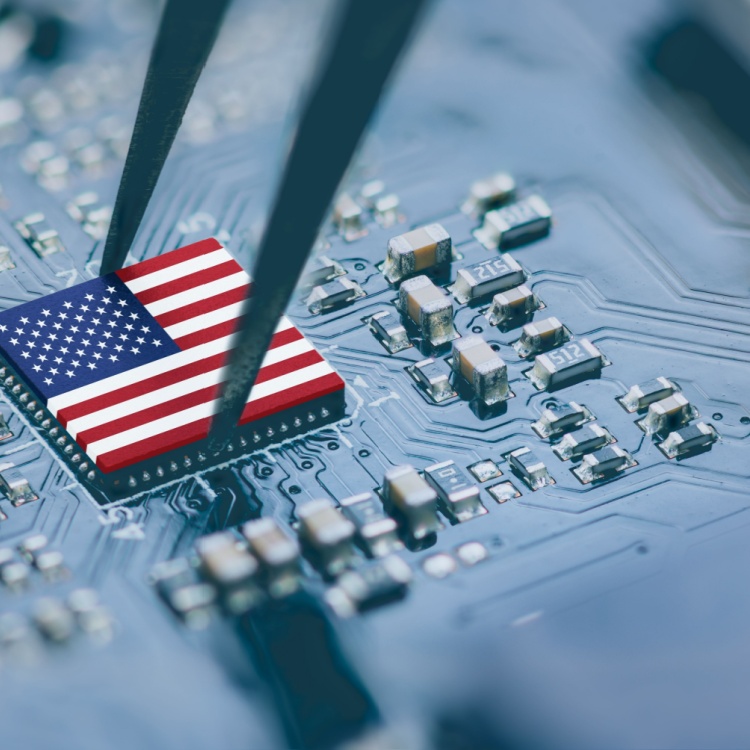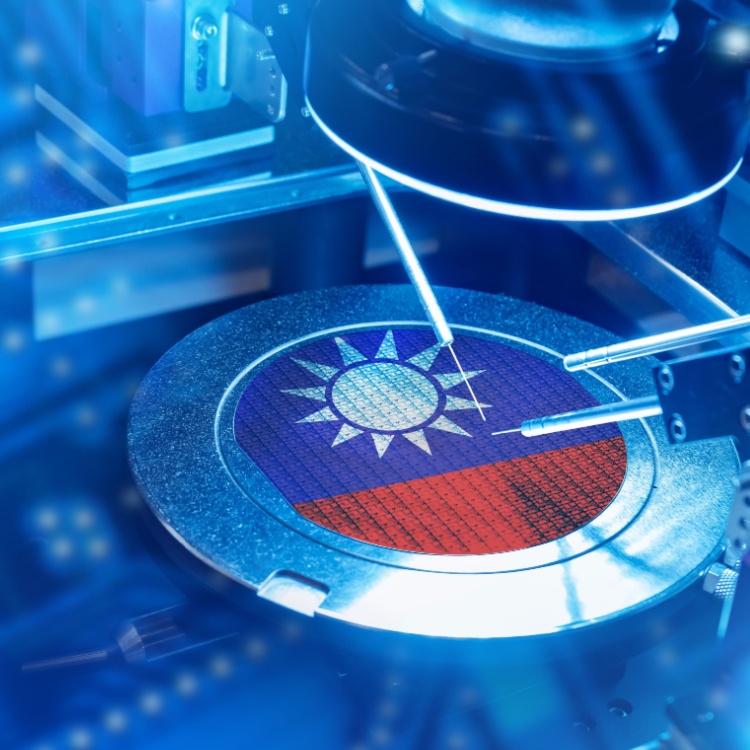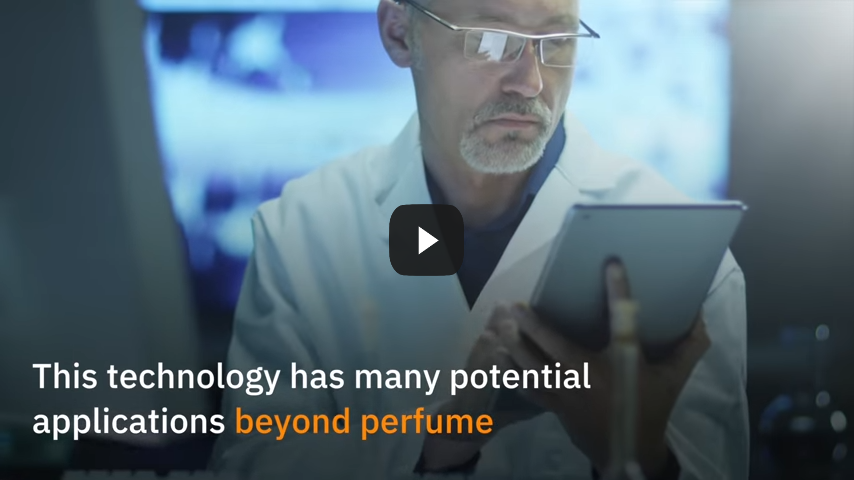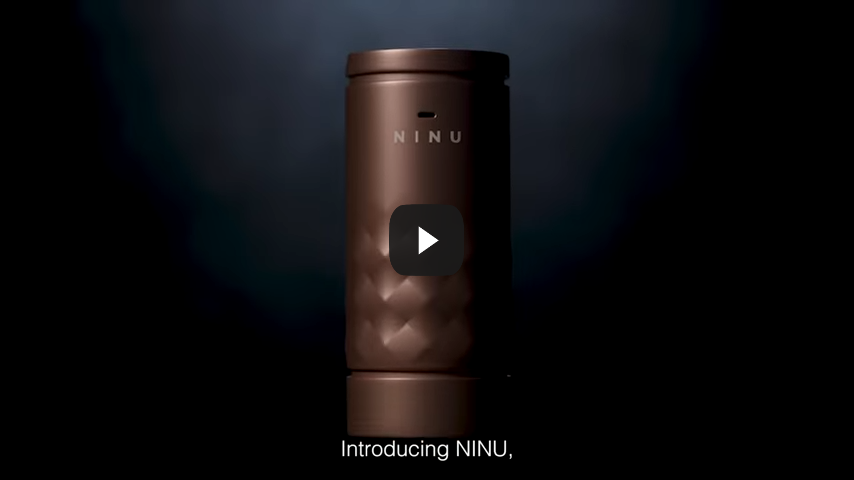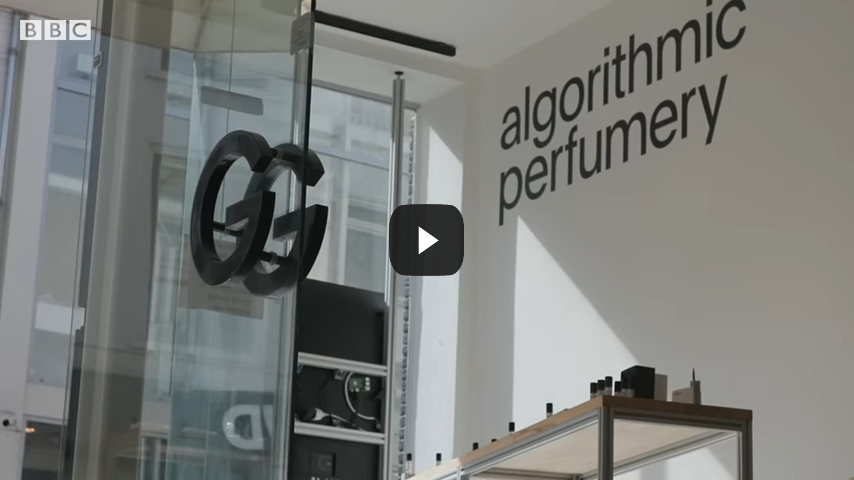Scents and Science: AI in Creating Fragrances

The digital nose knows! Discover how AI is helping perfume houses create hyper-personal fragrances.
AI is finding its way into almost every industry—including the perfume business. In this article, we take a whiff of emerging trends in perfumery and find out how big fragrance houses are concocting new scents with the help of digital technology.
The nose knows
A scent is a powerful trigger for emotions and memories. The mouthwatering aroma of our favorite childhood dish reminds us of a time when we were cherished and carefree. The top notes of our grandmother’s perfume conjure the warm embrace and kind words of the woman who adored us. Scents can change our mood and the spirits of those around us, from sad to happy, restless to relaxed, and passionless to sensual. No wonder it’s a multi-billion dollar global industry.
For centuries, men and women alike have enchanted their lovers with fragrances created by perfumers who combine chemistry with charisma. In this era of digital technology, perfume houses are harnessing artificial intelligence to bring big data into the world of fragrances.
Named after the Greek goddess of perfume, Philyra is the result of a collaboration between IBM Research and Symrise, a global manufacturer of flavors and fragrances headquartered in Germany.
Armed with market trends, historical performance data, thousands of raw materials, and a database of 3.5 million legacy formulas, Philyra uses machine-learning algorithms to create new fragrance formulas for a specific target market.
According to IBM Research, Philyra’s algorithms can learn, suggest, and predict alternative raw materials and formula substitutes; appropriate dosing for raw materials; the human response to a fragrance; and the novelty of a fragrance by comparing it to commercially available ones.
In 2019, perfumer David Apel, who has created scents for Elizabeth Arden, Carolina Herrera, Ralph Lauren, and Tom Ford, among others, teamed up with Philyra. They were commissioned by Brazilian cosmetics company O Boticário to create three different variations of a perfume. One was to be created entirely by AI, while the second was to be tweaked by the perfumer. The third version would be a formula suggested by Philyra, but the perfumer would create his own formula based on it.
A blind jury at O Boticário was asked to choose their favorite fragrance among the three variants. The result? “The overwhelming majority opted for the 100% AI-generated perfume,” said Achim Daub, a member of the Executive Board for Scent & Care at Symrise.
For Apel, he sees Philyra not as a competitor but as a collaborator. “I get the chance to see perfume formulas that I would never have thought of myself,” he shared with German broadcaster DW. “I tend to prefer certain ingredients and want to make a very specific kind of scent.”
Not bound by cultural bias and personal preferences, Philyra can be more impartial when analyzing data and suggesting formulas, resulting in a more novel approach.
(Also read: AI and Creativity: The Algorithm of Art)
More than a hundred different fragrances in one bottle—this is the promise of NINU, the world’s first smart perfume. The smart bottle contains three cartridges with curated fragrance bases that can be blended to create various scent combinations. Using a smartphone app, you can mix and match scents to create your own fragrance on demand. Thanks to AI, NINU can also suggest the best scent for your mood, activity, or even today’s weather! The design of NINU is environmentally-friendly, with recyclable cartridges containing vegan and animal cruelty-free ingredients that are skin safe.
NINU founders Marko Matijević and Simon Mohorovič have spent the last four years developing their product, exhibiting their prototype at fragrance expos in Monaco and Paris. At the 2022 Pentawards, NINU won a Gold Award in the Professional Concepts: Body, Skin, Health & Beauty category.
(Also read: How AI Can Boost Business in Retail)
“What if every human could have their own personal scent?” This was the question that artist-technologist Frederick Duerinck and scent designer Anahita Mekanik sought to answer with Algorithmic Perfumery, the world's first AI-guided scent creation platform.
“When you visit Algorithmic Perfumery, you’re invited to fill in a brief questionnaire on your phone,” Mekanik and Duerinck shared with Moooi. “Our futuristic sensory machine will then create three one-of-a-kind scents based on your answers.”
The “fragrance printer”, which houses more than 200 ingredients, creates the customized scents in minutes. Customers can then tweak their personal fragrances or produce new variations on the spot. By providing feedback on their hyper-personal scents, customers help the system improve and continue learning. Mekanik and Duerinck have been bringing Algorithmic Perfumery around the world, visiting design expos and tech conventions in Asia, Europe, and North America so that the AI-driven computer program can get more data from different cultures.
For Mekanik and Duerinck, Algorithmic Perfumery gives customers the power to decide what the best scent is for them. “Algorithmic Perfumery is about enabling the creator within and exploring the realm of possibilities. This philosophy is the basis of our approach to scent design. We believe you know best what you like and don’t like,” they shared.
Through a combination of chemistry, art, and pitch-perfect advertising, creating a perfume can take years. AI can speed up the process and open the doors to novel formulas and hyper-personal creations—giving perfumers more time to imagine, explore, and stop to smell the ros.
As one of the Top 19 EMS companies in the world, IMI has over 40 years of experience in providing electronics manufacturing and technology solutions.
We are ready to support your business on a global scale.
Our proven technical expertise, worldwide reach, and vast experience in high-growth and emerging markets make us the ideal global manufacturing solutions partner.
Let's work together to build our future today.
Other Blog
